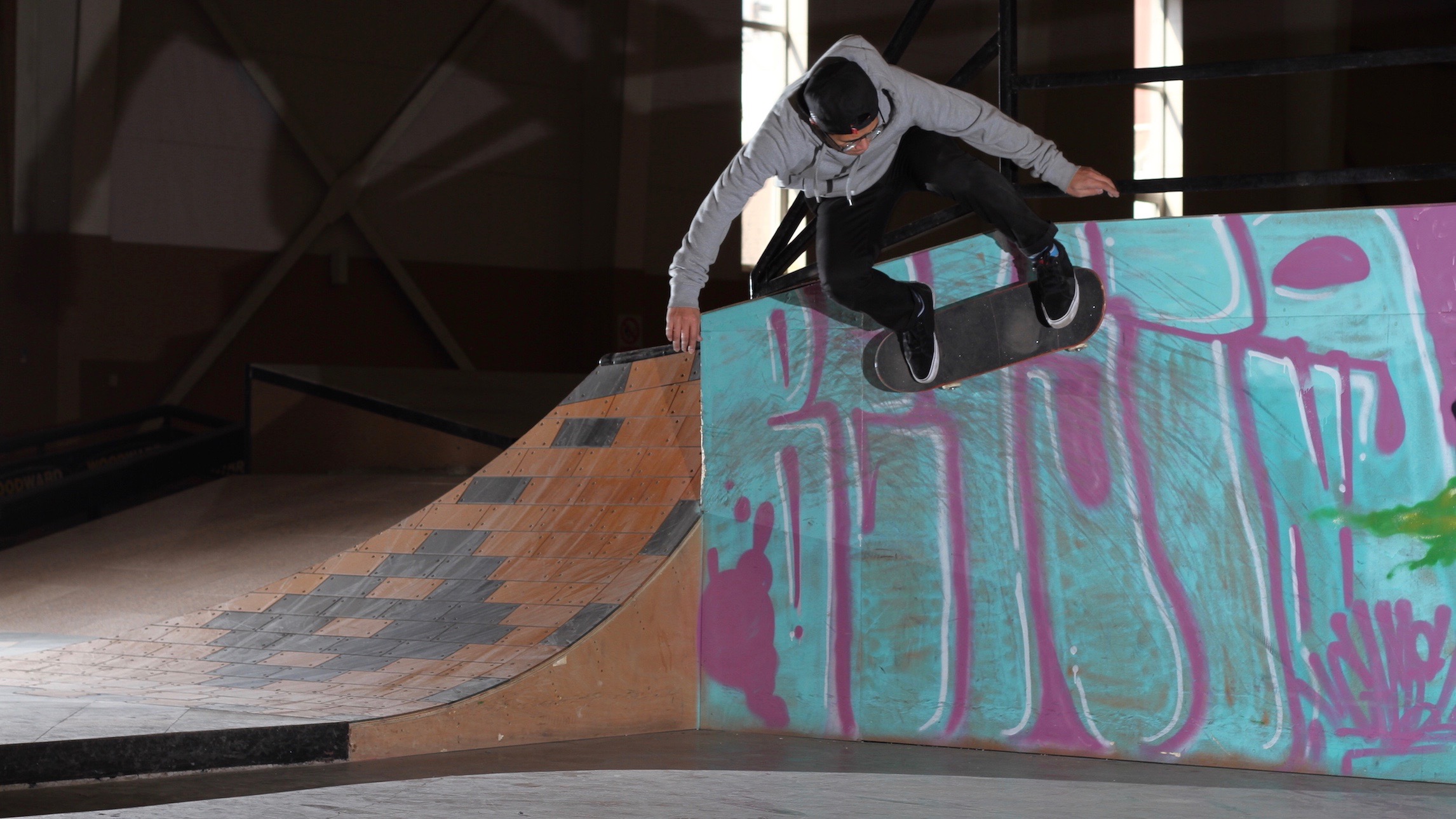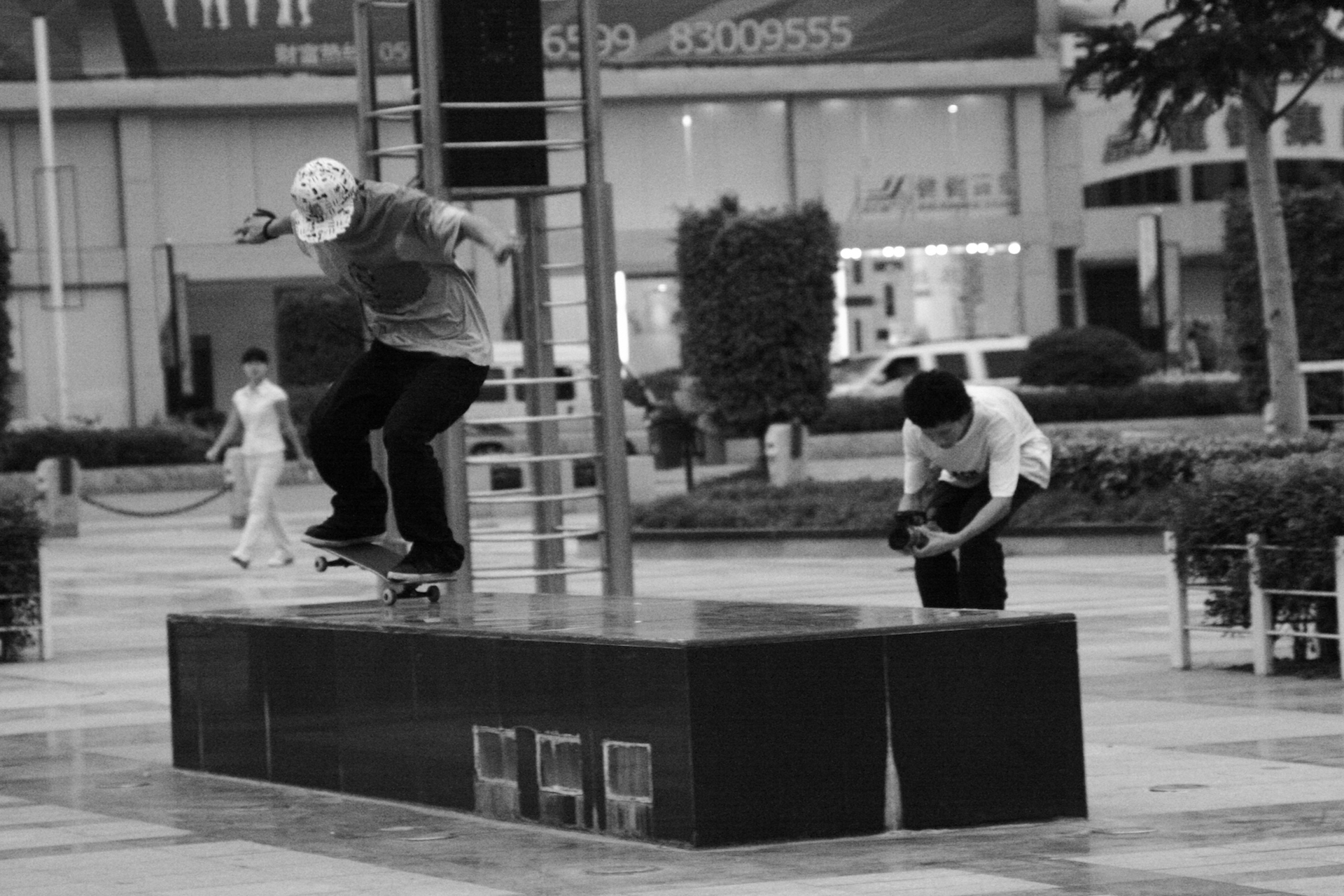It is a fascinating thing, as we mentioned in Keet Oldenbeuving’s Stomping Grounds, to see how skateboarding has developed- evolved, more accurately, in different parts of the world. And again as we also mentioned with regards to Mozambique’s righteous Francisco Vinho, skateboarding scenes in their comparative infancy need people who go above and beyond in the service of the game just because they love it so much that they want to see it flourish and reach as many lives as it can so that it might shape just a few as it has done for them.
China’s Liu Wenbo AKA Daniel (to us)- and BBL to almost everybody else- is one such individual.
Alongside David Lestrade- who you may recall already, Daniel was one of our first Level 1 Judging intake to be Certified through our ISJC programme, designed to raise standards and open doors for skateboard judging at national and international levels; but this barely scrapes the surface of his rich contribution to the skateboarding game where he hails from.
We genuinely love having the privilege to shine a light on total dons like this who usually sail way under the radar- so here, friends, is Liu ‘Daniel’ Wenbo to break down thirty years of Chinese skateboarding lore for us.
This is a slam-dunk of a Certified interview, so enjoy!
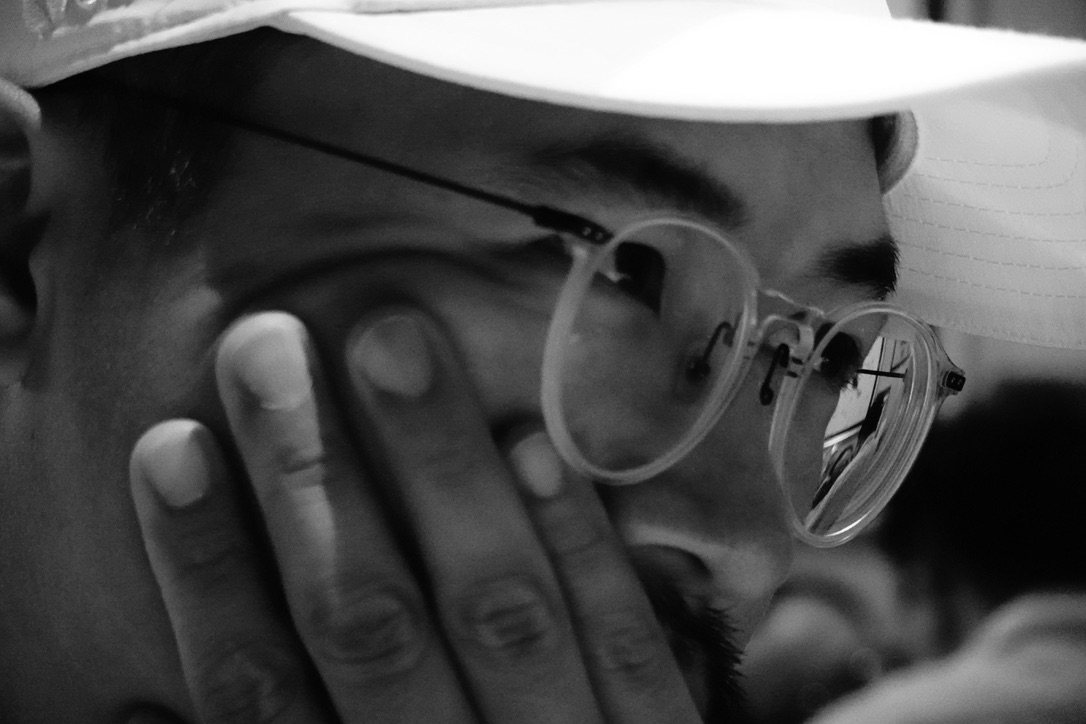
Hi Daniel, can you introduce yourself for us please?
Hello, my name is Liu Wenbo, but in the skateboarding scene, everyone calls me BBL. These three letters are the initials of my Chinese nickname. Physically, I’ve never had plastic surgery.
I’ve been skateboarding for thirty-two years and working in the skateboarding industry for twenty one of those. I founded the Chinese skateboarding media outlet Madfuture and have helped showcase the many facets and hidden corners of the skateboarding world through media.
Interestingly, it all started when my father bought me a toy skateboard. I didn’t even know what it was at the time, because I had never seen a skateboard in real life, nor did I ever ask for one. But once I stepped on it, I just kept skating and never stopped.
In the beginning, I didn’t even know how to push. I would just finish my homework and go find a slope to roll down, because I had no idea how to push on flat ground. Later, I got a Powell Peralta Tony Hawk Skull deck with 60mm Bones wheels; the shop owner had never seen someone who could skate, so he asked a demo and really liked it- so he gave it to me at wholesale price.
For the next three or four years, all I could do was tic-tac. My father would ride his bike alongside me on the street while I skated. He is a person that always knows how to have fun. Back then, his road bike cost the equivalent of our family’s entire annual income! I think that’s also why he was willing to spend almost a month’s salary to buy me my first skateboard.

OK so first of all, tell us about the skate scene in China currently. What’s new there?
I’ve always worked in skateboarding media, and honestly, I rarely see foreign media or social platforms giving objective coverage of skateboarding in China.
Most people just use their own ideas to find things that support what they already think.
So when you ask about something new, I think many things here are actually very new for people outside of China.
It might be a long story, but here’s what the skate scene in China looks like today: since 2017, China began to take skateboarding seriously as a sport.
At that time, everyone was struggling in the blurred space between street skating and competitive skating, trying to find the right path.
Also around 2017, China started building large numbers of concrete skateparks. In 2005, there were only one or two bowls in the entire country. But now, there are nearly fifty parks which can meet competition standards. And from a competitive skating perspective, almost every province has its own government-backed professional skateboarding team. A few young girls, after just a few years of training, even made it into the Olympic finals. This has been incredibly inspiring for the Chinese skateboarding community.
China’s national federation hosts more than twenty nationwide skateboarding events each year, including the National Championships, the All-Discipline Championships, the Youth Championships, the U-Series Youth Tour, and the Open, among others. Many young skaters and judges have grown through these competitions.
From the street skating side, pure street skate shops are almost gone. In 2019, a reality show called One More Try showed a famous pop star trying skateboarding. His fans followed him and started skating too. Also, because of the growing influence of contests, many skate shops changed into skate schools or training centres.
Aspiring young athletes who want to achieve something in skateboarding now have a place to start their careers, forming the early stages of talented kids and development for the government teams. Meanwhile, it’s also now very common for people to buy skateboards online, not just in shops.
Nowadays, whether it’s an official contest or a local skate event, you’ll see crowds of eager kids in full pads from various training centres. Participation numbers have grown from just ten or twenty (per event) to, like, a hundred or more. I often joke about it- the street skaters gave the schools and teams the skate culture and skills of skating, and the schools and teams helped skaters reach big dreams—like getting a job in skateboarding, higher levels of performance, incredibly difficult tricks, international events, and championship honors that are related to themselves.
The vibe at skate events now isn’t just about celebration- it also includes competition, a variety of event formats, and even fun family-friendly vibes.
Many athletes who trained on professional teams have returned to the skate scene after retiring, becoming coaches and passionate skaters again.
That’s truly encouraging. It’s a very unique thing that has emerged since 2019.
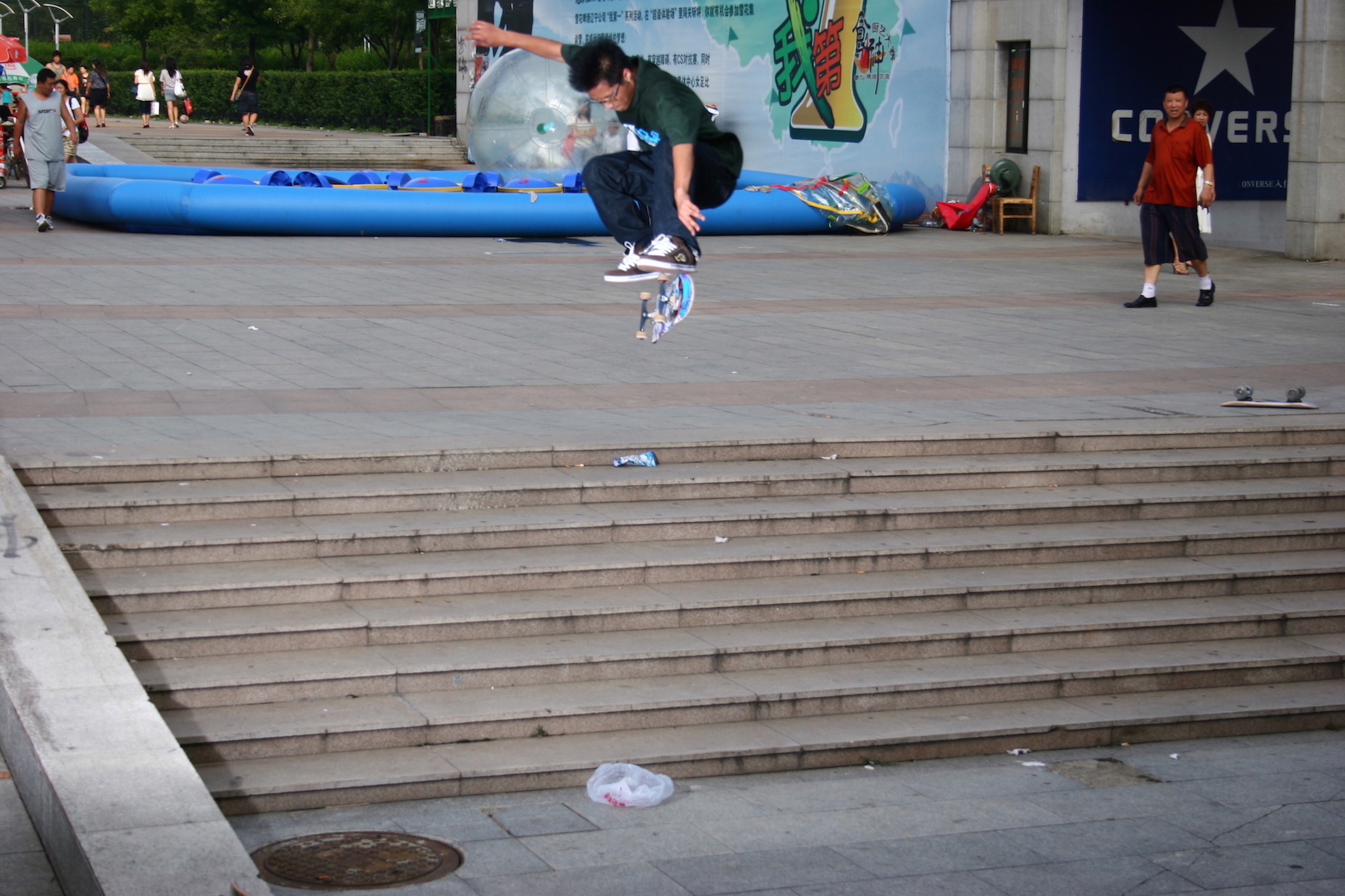
Can you tell us a little bit about your own role within the Chinese skate community? I believe you are one of life’s natural organizers?
I’ve always felt that my role in China’s skateboarding scene is quite complex. At heart, I consider myself a natural skateboarder, and I often find myself choosing to do what I believe is right for skateboarding as a whole. Sometimes, that means becoming a bridge between different sides—which I also see as part of the responsibility of working in media.
Many people know me through the various roles I’ve played in skateboarding over the years. In the 1990s, I was among the very first generation of skateboarders in China, and one of the youngest who kept skating consistently. After graduating from university, I entered a skateboarding company, where I translated contents all over the skateboarding world and helped build platforms for cultural exchange. Later, I founded a skate media outlet and started writing about the industry—sometimes fun, sometimes challenging, and sometimes focused on more complex issues.
Eventually, people realized I could skate pretty well too. While running the media platform, I also became a professional skateboarder. But over time, I realized I didn’t enjoy repetitive training. Competitions and injuries became a source of stress, and I found myself more interested in team management and branding. So I began learning photography, filming, editing, communications, brand operations, and more. My career path grew naturally from there.
Around 2012, during a contest, a judge unexpectedly left the event. I happened to be reporting there, and was pulled in to help judge. That marked the beginning of my judging career. Since then, I’ve been invited to judge events every year. I genuinely enjoy this role. I’ve always had a strong sense of fairness, and after each contest I feel a real sense of accomplishment. I never want to hurt the trust and respect for judges by personal gain.
What’s even more meaningful is seeing new generations of skaters grow up. It reminds me that no matter how much other work I take on, I’ve never really stepped away from skating.
In 2016, skateboarding entered the Olympic Games, and in 2017, it became an official event in China’s National Games. That shift changed my position—from someone respected in the street scene to an 'official judge' and a 'recognized expert'. It happened fast, and brought new waves of tension between the skateboarding community and the emerging competitive side of skateboarding.
I found myself working with coaches, officials, government leaders, and business people. Many of them didn’t understand skateboarding but were suddenly involved in it. I didn’t reject their lack of knowledge, or their biases; instead, I saw it as an opportunity for communication. I welcomed the mix of perspectives and took on the role of a bridge between the ‘official’ side and the skate community. Through articles and media content, I explained the misunderstandings and helped both sides see that we’re all there trying to support and grow skateboarding in our own way.
Skateboarding culture has many forms. Everyone involved is a part of that culture and part of the history that’s still being written. I’ve always encouraged people to stay open, collaborate, stay involved, and keep skating. A skate industry only matters if it’s alive. As long as we’re still in it, people will know where this culture came from, and why skateboarding is more than just a sport.
I don’t see myself as a natural organizer. I enjoy skating for myself, and I’m not someone who loves to speak publicly. But when skateboarding needs me to take on that role, I will. And when I’m asked to appear as an ‘expert’ or ‘consultant’, I’m there to share everything I know.
Now, on my personal media channel, I’ve created a new character called ‘Big Bro’ (Hao Da Ge). I make short videos using humor and jokes to talk about skateboarding, explain things, share opinions, and start conversations. Interestingly, more people now know me because of this 'Big Bro' character.
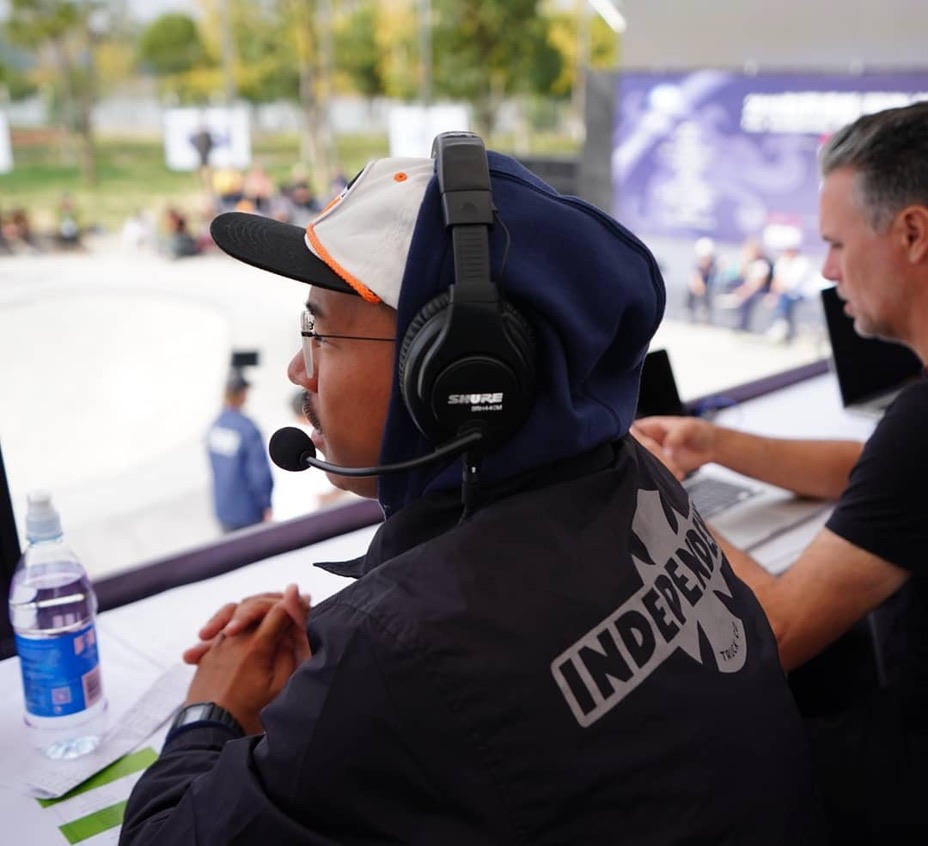
Skateboard judging criteria needs to find an established international level in order for people to get a true sense of how good they are compared to other nations, right?
To me, the most important thing about judging criteria in skateboarding is understanding their true purpose. These criteria are meant to provide a framework for competitive skateboarding. They are not a universal standard for what skateboarding should be. Outside of contests, the judging system holds no real meaning. In those settings, only skateboarding knowledge, experience, and what the community agrees upon matter.
Since skaters from all kinds of backgrounds and skill levels are competing on the same stage internationally, it’s necessary to have a way to assess performance fairly. The judging system can actually serve as a useful benchmark for countries where skateboarding is still developing. I know that in some places, skaters are just enjoying skating and having fun, which is great. But in many other countries, skaters are hoping to change their lives through skateboarding, and help grow the culture in their countries.
For those skaters, reaching the highest level during their short competitive careers requires more than just personal talent or style. They also need to understand how the judging system works. So… I hope this answers your question!
How has your experience of World Skate Judging Certification improved your ability as a judge, would you say?
I’m very thankful for the WSK International Skateboarding Judging Certification Program. It has given me a stronger sense of authority and professionalism when promoting skateboarding as a sport. I found the WSK Judging Recaps and Performance And Trick Ledger videos allowed me to align my scoring with international judges, even when I didn’t have the opportunity to judge at global events. That has been one of the most valuable tools for me. Park skateboarding is still quite new in China, and through the process of studying and preparing for the certification exam, I also gained insight into how Head Judges think and make decisions. That gave me more confidence and clarity in my own judging work.
We fully support the structure and question format used in the WSK Judging Certification Testing. Along with other instructors, we’ve adapted these elements into China’s own national-level judge examinations. Aligning with international standards has always been a priority in Chinese sports development, and WSK’s online courses made this possible.
What excited me the most was actually WSK’s Fundamentals of Judging Online Courses materials. The system is well-structured and clearly organized. But to be honest, much of the basic knowledge and common-sense content is something I’ve already been applying for years in China. In fact, our national association sometimes sets even higher standards for Chinese judges. So for me, what truely helped was the opportunity to review and learn from head judges's recap that WSK shared with us.
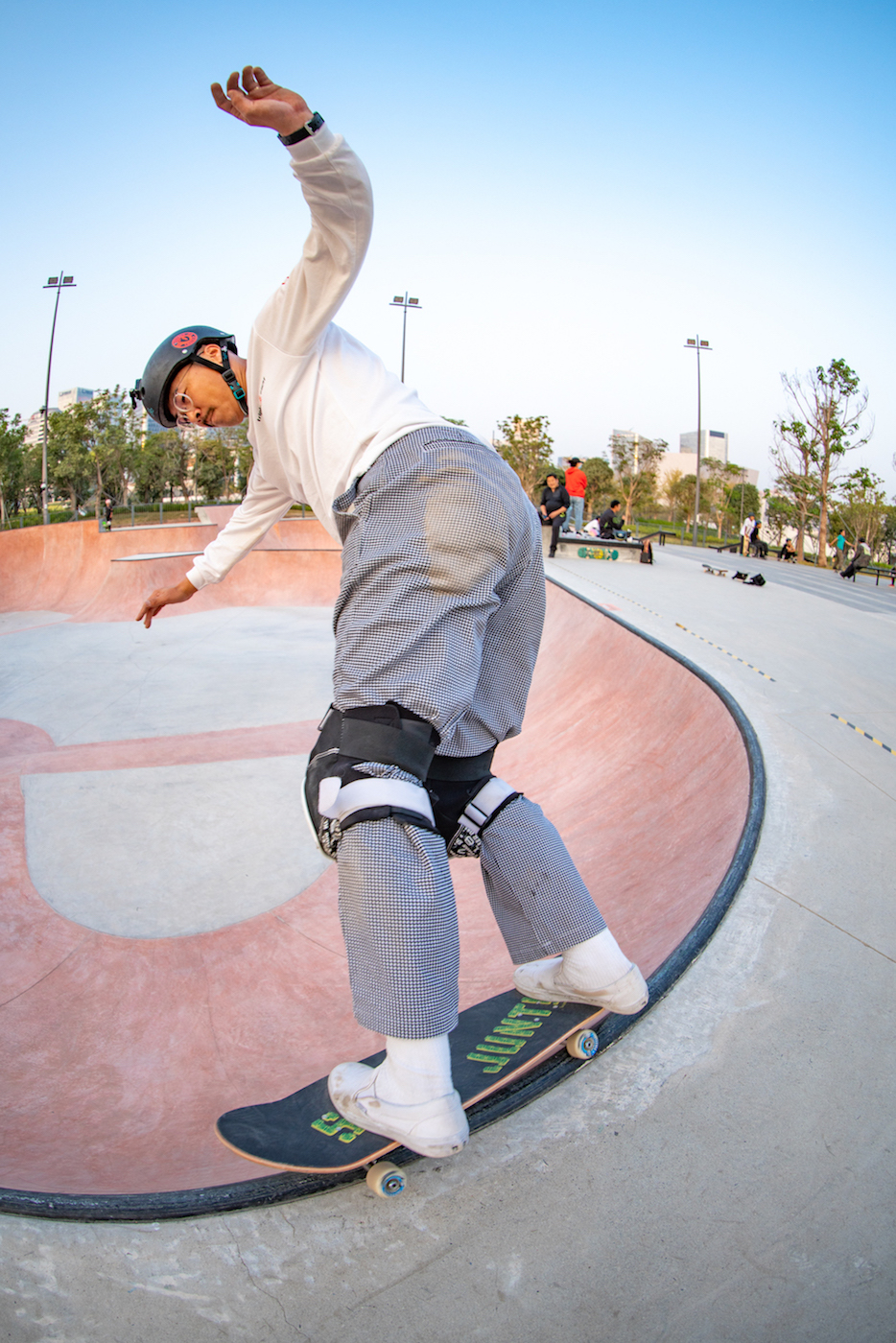
What else do we need to know? This is your chance to tell our community what’s up!
I really hope more people can notice the growth and openness of skateboarding in China, and start to explore the different sides of skate culture here. It would be great if more skaters had the chance to visit China, get involved in the local scene, and connect with the skate communities on the ground.
Because of language differences, not many Chinese skaters are active on platforms like Instagram or YouTube. But that doesn’t mean the scene is lacking. Both in competitive and street skating, there are a lot of interesting, dedicated people in China—people who are truly passionate and willing to give back to skateboarding. They might not all share the same values or follow the same paths to recognition, but they’re each adding something meaningful.
Spending a few months in China might not be enough to understand everything, and if you’re only seeing things through one language or social media bubble, you’re probably only seeing what you expect. In real life, Chinese people are often humble, welcoming, and curious. And as for the street spots, many of them are beyond what you’d imagine!

